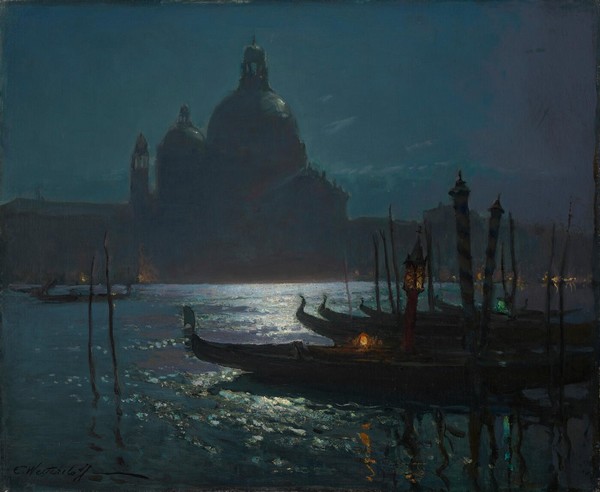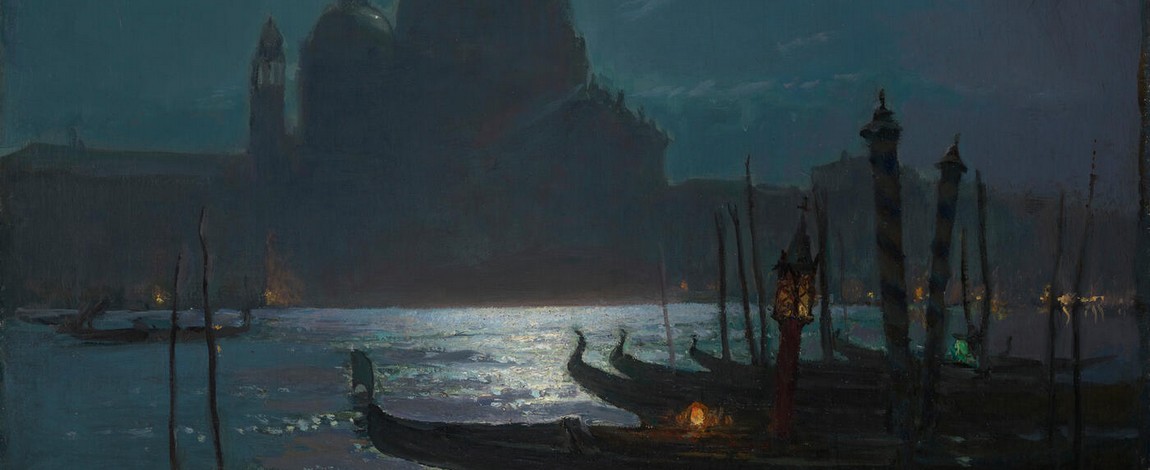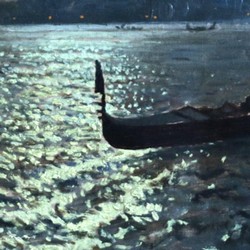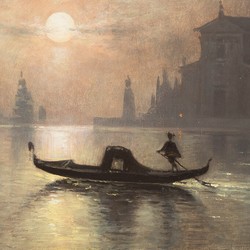
What should the Venice of Thomas Moore look like, our poet this week? By day, things were different from what we know today. But maybe at night Venice, two hundred years ago and now, are similar. In the evening, many groups that visited the city during the day have already left. There are no loud bachelor parties or similar events, possibly due to the high cost of lodging and alcohol, which does not favour them. I wish Barcelona were to learn from Venice.
Driving motor launches at night is prohibited. Public transport operates through the three or four main channels, as usual. When you come from a noisy city, silence is surprising, and it is one of the most precious and lasting memories. It is only the splashing of the water and the footsteps of people, who speak quietly because no one dares to break the silence. If the rapturing beauty of Venice at day brings to the limit our ability to assimilate so many stimuli, the silent beauty, among the shadows of Venice at night, is a balm equally moving.
Even the Piazzetta, which was so busy before, becomes calm at night. And we can go back in time and listen to a serenade, the verses that Thomas Moore wrote and Felix Mendelssohn or Hans Sommer musicalized in the German version of Ferdinand Freiligrath. And, before them, Robert Schumann. Wenn durch die Piazzetta is the first of the two Venetianische Llieder that the composer included in Myrthen. The number 18 of this cycle is a very brief song, in which the passion of the lover is surrounded by the beautiful piano accompaniment; we will listen to it performed by Olaf Bär and Helmut Deutsch. Close your eyes and you'll be in Venice.
Wenn durch die Piazzetta
Die Abendluft weht,
Dann weißt du, Ninetta,
Wer wartend hier steht.
Du weißt, wer trotz Schleier
Und Maske dich kennt,
Du weisst, wie die Sehnsucht
Im Herzen mir brennt.
Ein Schifferkleid trag' ich
Zur selbigen Zeit,
Und zitternd dir sag' ich:
„Das Boot ist bereit!
O, komm’! jetzt, wo Lunen
Noch Wolken umziehn,
Laß durch die Lagunen,
Geliebte uns fliehn!“
When through the Piazzetta
Night breathes her cool air,
Then, dearest Ninetta,
I'll come to thee there.
Beneath thy mask shrouded,
I'll know thee afar,
As Love knows, though clouded,
his own Evening Star.
In garb, then, resembling
Some gay gondolier,
I'll whisper thee, trembling,
Our bark, love, is near:
Now, now, while there hover
those clouds o'er the moon,
'Twill waft thee safe over
yon silent Lagoon."
(Thomas Moore)
















